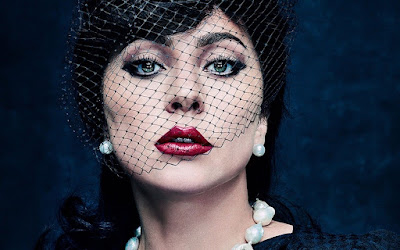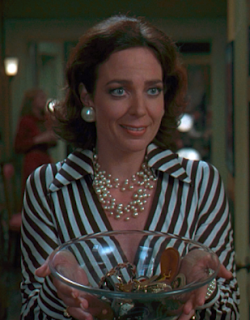Film Review: Jurassic World: Fallen Kingdom
Some say that The Lost World was the worst film Steven Spielberg ever directed (although true Spielberg aficionados know of its competition), but there’s always something wild and smart and interesting about Spielberg sequels, even when they're not great movies. He’s clearly conflicted about them, knows they’re studio cash grabs, and as a result, he tends to take risks and go in all knowing and extra dark. In The Lost World, we cut from a shot of a mother’s scream of terror to a bored, yawning Jeff Goldblum looking at us through the camera lens: he is our stand-in, who has seen it all before. In a sequel, as Spielberg announced via his future wife in the opening of the underrated Temple of Doom, “Anything Goes.” He knows the challenge of surprising us and wants to try anyway, occasionally succeeding at least in showing us something strange.

At least in this way, Fallen Kingdom -- which he executive produced -- is a very Spielbergian sequel.
There has always been something prehistoric-gothic about the Jurassic Park films, with the grand interior spaces, dark and stormy nights, and the foreboding footsteps of monsters on the prowl. It all amounts to a “pleasing sort of terror,” a darkly grand and romantic adventure with sharp clawed-creatures which inspire wonder as well as fear. John Hammond was obviously of the Dr. Frankenstein archetype, and the DNA-mixing-super-dino creations of later films only reinforced the looming influence of Mary Shelley’s classic tale of the uncanny monstrosities born of scientific-overreach. But in Fallen Kingdom, particularly the second half, the Gothic undercurrents are made fabulously explicit – it is the Bronte sisters who also loom, peculiarly, over this gloriously dark and campy film.

The plot isn’t all that special – bookended by Jeff Goldblum’s congressional testimony warning of the dangers of human greed, the first half is a Lost World-like adventure where Chris Pratt and Bryce Dallas Howard (now, sadly, without her fabulously impractical heels) attempt to rescue dinos, including the intelligent raptor "Blue," from an exploding volcano.
The second half, however, returns us to a grand gothic Lockwood Manor, where dinosaurs have been smuggled to be auctioned off to the .1% (there are some predictable betrayals which lead to this) by a treacherous underling to the Hammond-counterpart played by James Cromwell. Here, things become quite interesting: Cromwell’s granddaughter, of mysterious biological origin, investigates the dino-haunted manor (eventually meeting up with Bryce and Chris), and director J. A. Bayona (The Orphanage) drenches the atmosphere with moonlight, storms, dark hallways, foreboding fossils, secret doors, and Nosferatu-like behavior from the hyper-intelligent hybrid "Indo-Raptor". When the creepy creature leaps upon the manor rooftop, bellowing in the storm under the full moon, ready to silently creep into the observant Maisie's bedroom, it is completely campy – even silly – but oh such pleasing terror. If Colin Trevorrow, like J. J. Abrams, palely imitates their influences, then Bayona, like Rian Johnson, risks and innovates. It doesn’t all work, but it’s always a more fascinating result.
 |
| "These creatures were here before us and if we're not careful, they're gonna be here after," he warns idiot Senators in Fallen Kingdom |
 This is no Spielberg chef-d'oeuvre – there will never truly be another Jurassic Park, which is one of a handful of true blockbuster masterpieces. But Fallen Kingdom, at least, knows there will never be another Jurassic Park, and ponders why. It is delightfully dark, fun, thoughtful, and “aggressively strange” (as my boyfriend put it) in a way the previous two Jurassic sequels were not. And if Jurassic World was essentially a disappointing, soulless remake of Jurassic Park, Fallen Kingdom is a less a remake than a dialogue with The Lost World which triumphs over its source material with its creatively risky second half.
This is no Spielberg chef-d'oeuvre – there will never truly be another Jurassic Park, which is one of a handful of true blockbuster masterpieces. But Fallen Kingdom, at least, knows there will never be another Jurassic Park, and ponders why. It is delightfully dark, fun, thoughtful, and “aggressively strange” (as my boyfriend put it) in a way the previous two Jurassic sequels were not. And if Jurassic World was essentially a disappointing, soulless remake of Jurassic Park, Fallen Kingdom is a less a remake than a dialogue with The Lost World which triumphs over its source material with its creatively risky second half. This is far from a great film, but it’s a fun, bizarre movie. There are a smattering of artful attention-seeking shots and winking callbacks to Spielberg’s originals, and it explores the idea of nostalgia with unexpected nuance and depth. The increasingly baroque Dinosaur hybrid creations and the crazed scientists who create them – fueled by both creative need and greed – is an interesting commentary on the production of Hollywood sequels, and the film makes knowing nods to these parallels. I enjoyed it, and if you go with the right attitude, I think you’ll enjoy it as well.
3/5 stars.





Comments
Post a Comment